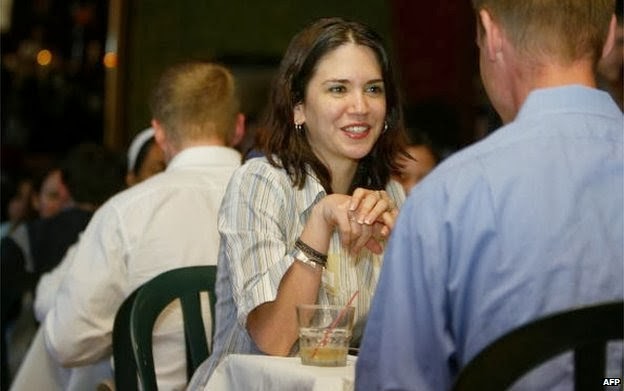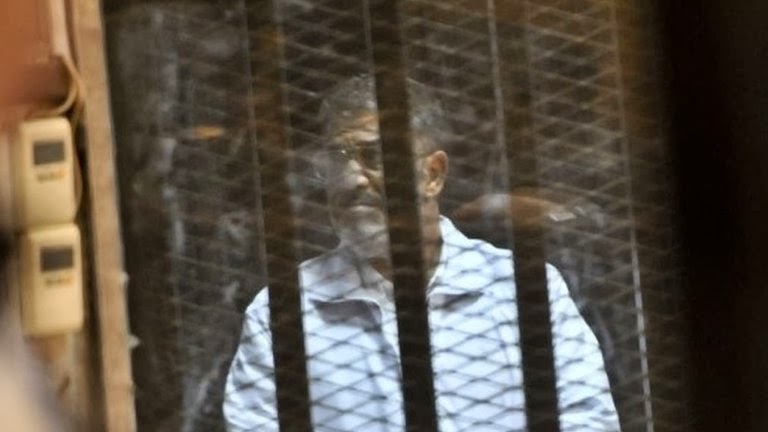Abubakar Shariff Ahmed is
not a hard man to find. Ask around in the Majengo area of Mombasa and
people will know where he lives.
But ask around too conspicuously and you are likely to arouse suspicion. Mr Ahmed is perhaps better known by his nickname, Makaburi. It means "graveyard" in Swahili.
His name features on US and UN sanctions lists of people suspected of involvement in terrorism - accused of recruiting young Kenyan Muslims for violent militant activity in Somalia.
He himself believes the Kenyan police will one day try to kill him. So he is careful about his security.
We had made an appointment to see him one recent, sweltering afternoon, as the shadows lengthened on Majengo's dusty backstreets. We parked outside a pink-coloured apartment block, next to a car mechanic's workshop.
I wandered into a courtyard. It seemed empty. Suddenly, the clatter of flip flops on concrete and the cries of boys kicking a football. I asked one of them if he knew where Makaburi was. Not around, he shrugged.
I went back outside to wait. Two slightly older teenagers, with serious-looking beards, were by now sitting against the wall, next to a defunct fridge with a Coca Cola logo peeling off the side.
From Our Own Correspondent
- Insight and analysis from BBC correspondents, journalists and writers from around the world
- Broadcast on Radio 4 and BBC World Service
"Where is Makaburi?" I asked. No response.
So we sat there without talking, listening to the sounds of
the neighbourhood drift on the evening air, still and heavy with
humidity. Finally, he showed. Makaburi is one of those large men who carries his weight well - he moves slowly, but he is quick to smile and he exudes that easy-going manner that comes with self confidence.
We recorded an interview in his fourth floor flat - the two bearded youths came with us, watching proceedings with ill-concealed suspicion and hostility.
Makaburi's manner may be charming but his beliefs are uncompromising. The time is near he told me. An army of Allah will rise up out of the desert. It will come bearing a black flag and establish a global Islamic caliphate.
He denies recruiting for al-Shabab, or calling on his followers to travel to Somalia to fight.
"I do not have any followers," he says at one point. I nod towards the bearded teenagers. "Who are they?" I ask. "They have come to ask my advice," he says.
“Start Quote
MakaburiI have not listened to music for more than a decade... where there is music, there is ungodliness”
His advice is that, if Islam is under attack, which he says it is, then it is every Muslim's duty to wage jihad.
After the interview we sat together on the roof where the
breeze had picked up and the air was beginning to cool. "Let me invite
you to Islam," he said, breaking once more into that charming smile. I smiled back. "Regretfully," I said, "I am an atheist."
He screwed up his face, and waved towards the two bearded students, loitering now next to a nearby pigeon coop.
"Look at them," he said. "Each from a different Kenyan tribe, and me from yet another. But thanks to Islam, we are brothers. Religion brings us together."
I countered with a story I had once heard on this very programme. A BBC reporter in Bosnia, during the war in the 1990s, had asked an elderly gentleman whether he was a Croat or a Muslim?
The man's reproachful response had struck home: "I am a musician," he had said. Music could unite where religion divided. Makaburi was unimpressed.
"Everywhere there is music, there is ungodliness," he said
He told me a story about a sailor he had known who had spent a long time at sea aboard a cargo ship. According to custom, after going to the toilet, he would wash instead of wipe.
But he was the only Muslim on board, and eventually the other sailors confronted him about the splashes of water around the loo. Could he stop it please, they found it unhygienic.
They were sitting at breakfast and there was a can of condensed milk open on the table. Makaburi's sailor friend took the hand of one of his colleagues and dabbed it with some of the sweet sticky substance.
"Now wipe it off with a tissue," he told him, "then lick your hand. Tell me does it still taste of condensed milk?"
The sailor did so and admitted that yes, his hand still tasted sweet.
Did his hand still taste of milk? It did not. The point was made.
"But surely this is not what it all boils down to," I protested. "Of course not," Makaburi beamed. "But let me give you a copy of the Koran," he pleaded. "You read it, you will see."
I promised I would, but on one condition. Would Makaburi in return listen to my favourite jazz album, and tell me honestly what he thought?
He looked disgusted. "No," he said, "no way. I have not listened to music for more than a decade." And so we parted, our cultural exchange, between atheist and Islamist, unconsummated.




